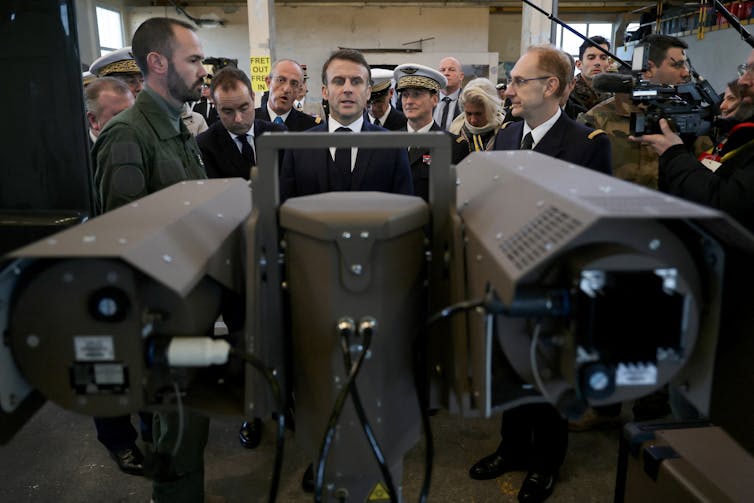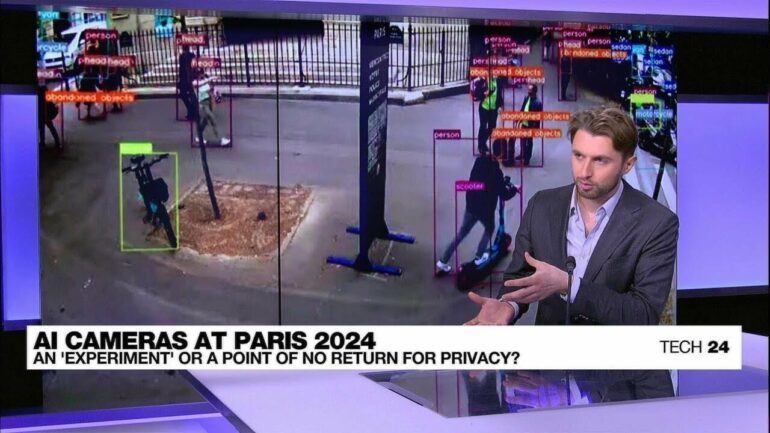The 2024 Paris Olympics is drawing the eyes of the world as thousands of athletes and support personnel and hundreds of thousands of visitors from around the globe converge in France. It’s not just the eyes of the world that will be watching. Artificial intelligence systems will be watching, too.
Government and private companies will be using advanced AI tools and other surveillance tech to conduct pervasive and persistent surveillance before, during and after the Games. The Olympic world stage and international crowds pose increased security risks so significant that in recent years authorities and critics have described the Olympics as the “world’s largest security operations outside of war.”
The French government, hand in hand with the private tech sector, has harnessed that legitimate need for increased security as grounds to deploy technologically advanced surveillance and data gathering tools. Its surveillance plans to meet those risks, including controversial use of experimental AI video surveillance, are so extensive that the country had to change its laws to make the planned surveillance legal.
The plan goes beyond new AI video surveillance systems. According to news reports, the prime minister’s office has negotiated a provisional decree that is classified to permit the government to significantly ramp up traditional, surreptitious surveillance and information gathering tools for the duration of the Games. These include wiretapping; collecting geolocation, communications and computer data; and capturing greater amounts of visual and audio data.

French President Emmanuel Macron reviews surveillance cameras in preparation for the Paris Olympics.
Christophe Petit Tesson/AFP via Getty Images
I am a law professor and attorney, and I research, teach and write about privacy, artificial intelligence and surveillance. I also provide legal and policy guidance on these subjects to legislators and others. Increased security risks can and do require increased surveillance. This year, France has faced concerns about its Olympic security capabilities and credible threats around public sporting events.
Preventive measures should be proportional to the risks, however. Globally, critics claim that France is using the Olympics as a surveillance power grab and that the government will use this “exceptional” surveillance justification to normalize society-wide state surveillance.
At the same time, there are legitimate concerns about adequate and effective surveillance for security. In the U.S., for example, the nation is asking how the Secret Service’s security surveillance failed to prevent an assassination attempt on former President Donald Trump on July 13, 2024.
AI-powered mass surveillance
Enabled by newly expanded surveillance laws, French authorities have been working with AI companies Videtics, Orange Business, ChapsVision and Wintics to deploy sweeping AI video surveillance….



